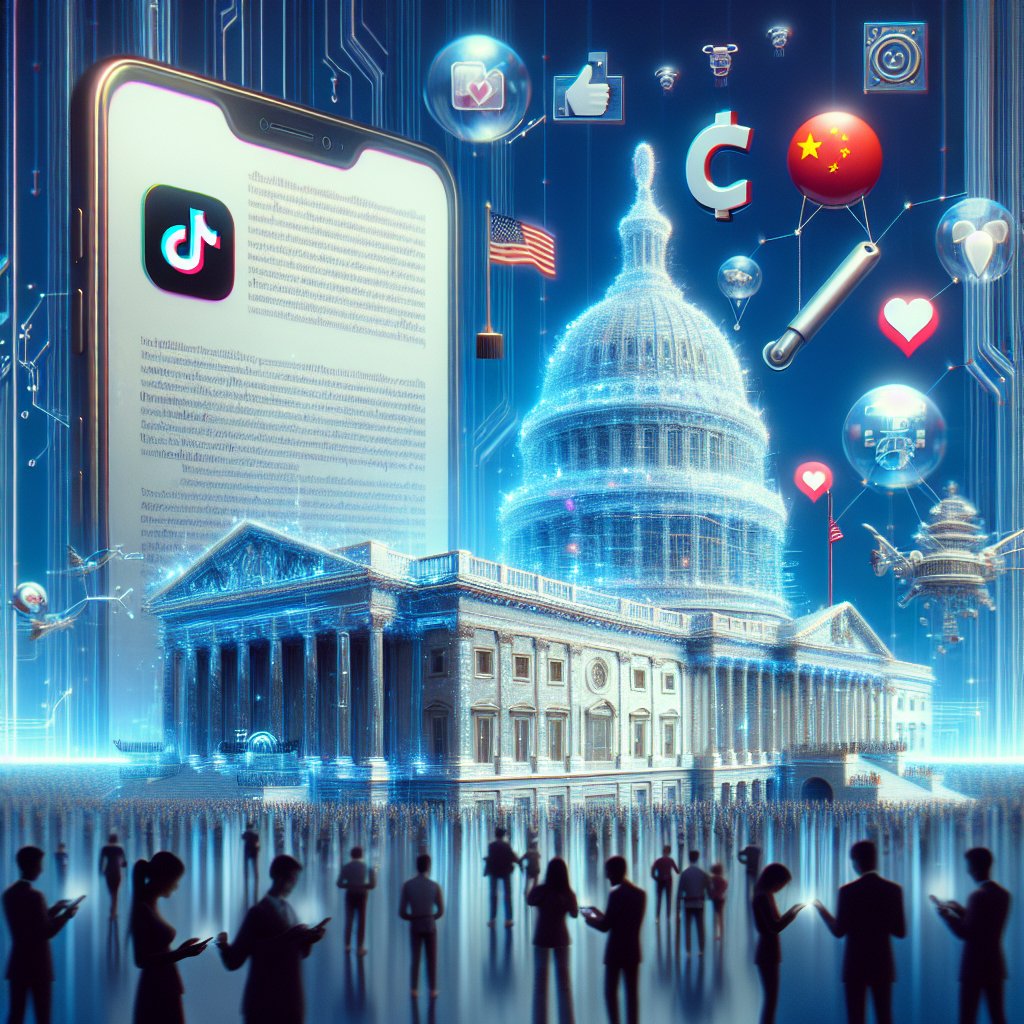Image created by AI
TikTok Turmoil: U.S. House's Push to Dislodge ByteDance Ownership Met with Measured Chinese Critique
The United States House of Representatives recently passed a chunk of legislation that could significantly alter the social media landscape and intensify the ongoing techno-political tussle between the U.S. and China. With a bipartisan push, the House bill mandates ByteDance to divest TikTok's U.S. operations or witness a potential ban of the app in the country, a move that is seen as safeguarding national security but criticized by Beijing for its "double standards" on free speech and commercial competition.
Though the contentious bill sailed through the House with a decisive 352-65 vote, the scenario in China casts a different hue as compared to previous escalating trade tensions. Instead of a full-throttle response or threats of countermeasures against American businesses, the Chinese government's reaction has been noticeably restrained but sharp. Experts believe that the bill's uncertain future in the Senate, the former U.S. President Donald Trump's dissent despite his past stance, and China's legal clout over sensitive technology exports afford Beijing the ease of a wait-and-see approach.
China retains influential tools in its legal arsenal that could bottleneck any forced sales, particularly regarding the proprietary algorithm that powers TikTok's addictive user experience - a technology it deems sensitive and controls sternly. The mere notion of ByteDance selling this critical technology to a non-Chinese entity, without the core algorithm, is contemplated as implausible, if not outright undesirable.
Beijing has reiterated its criticism of U.S. policy, painting the latest Congressional move as another example of America's unfounded paranoia over national security, which in China's view, compromises the ideals of a free market. Chinese scholars and social media further amplify this sentiment, seeing the legislative step as an affront to Chinese business interests and a potential harbinger for similar actions against other Chinese companies.
TikTok, on its end, claims to be doubling down on measures aimed at protecting U.S. user data, including a proposition to house American data domestically with oversight by Oracle. However, trust remains threadbare, signifying a looming policy impasse that might not untangle without both countries bridging their fundamental differences on cybersecurity, global technology dominance, and governance models.
Despite the political turbulence, TikTok’s cultural and social footprint continues to expand, with approximately 170 million users in the U.S. alone and a robust global presence. This user base constitutes a wide-ranging influence, particularly among American youths, that lawmakers fear could be exploited by the Chinese Communist Party for propaganda or intelligence gathering. Nevertheless, as President Joe Biden indicates readiness to endorse the House bill, all eyes turn to the Senate and China's potential counterplay.










